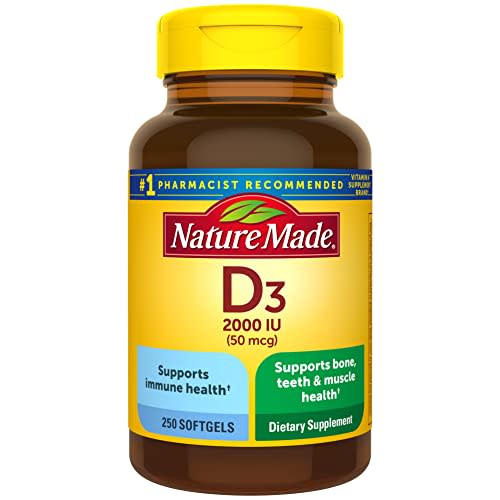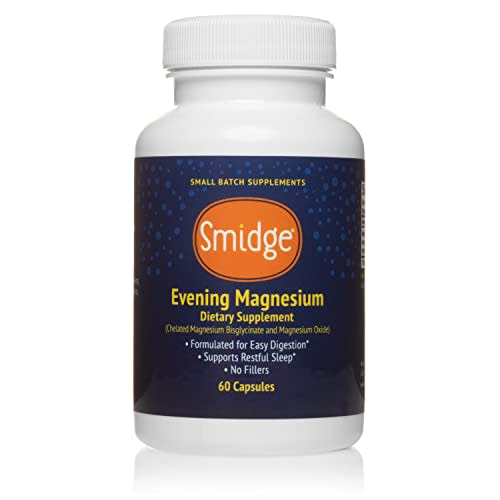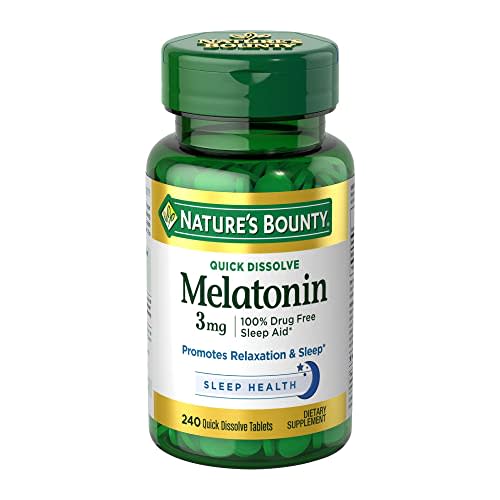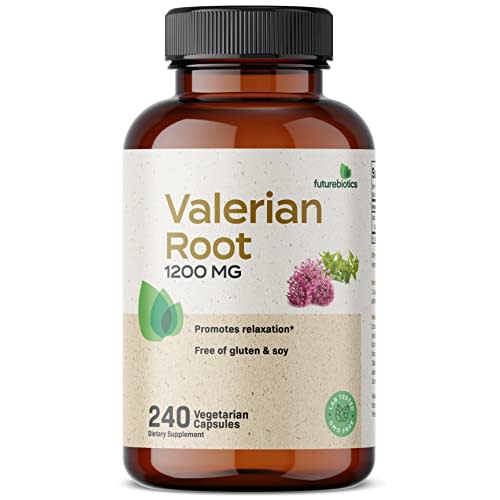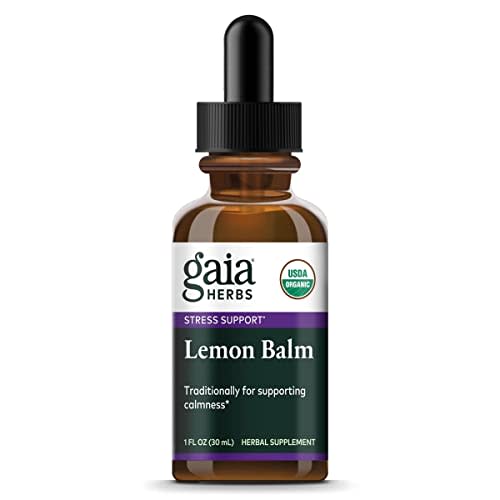5 Supplements To Consider if You’re Dealing With Anxiety

If you experience anxiety on a regular basis, you know just how disruptive it can be to daily life. Anxiety can rob you of experiences you would otherwise enjoy. It can stop you from leaving the house. It can keep you up at night.
Sometimes, it’s necessary to consider prescription medication to manage anxiety. But science has also shown a strong connection between what we eat and mental health. Sometimes, we just don’t get enough of what our body (and brain) needs through food alone, which is when it can be helpful to consider a supplement.
Here, registered dietitians who specialize in treating mental health through diet give tips on how to eat to manage anxiety and reveal five supplements to consider that could help.
Here at Parade.com, we're all about sharing products we love with our audience. When you make a purchase on an item seen on this page, we may earn a commission, however, all picks are independently chosen unless otherwise mentioned.
Related: This Is the #1 Best Habit for Anxiety, According to Mental Health Experts
How Diet Plays a Role in Anxiety Management
Registered dietitian Johna Burdeos, RD, explains that while there is no one-size-fits-all diet for mental health (since taste preferences and overall health needs can vary greatly), there are some general eating tips that scientific studies have shown can help. The first biggie is eating plenty of fruits and vegetables. Sure, you probably knew this one was coming, but there are ways fruits and veggies benefit the mind—not just the body. Burdeos says that these types of foods are high in antioxidants, which reduce oxidative stress in the brain, benefitting mental health.
Yelena Wheeler, RD, MPH, a registered dietitian nutritionist of the National Coalition on Health Care (NCHC), especially recommends prioritizing produce items with vitamin C, which has been shown to reduce inflammation and support mental health. Scientific studies show that vitamin C can help reduce anxiety levels.
Wheeler says that it’s also important to prioritize foods high in fiber. Besides fruit and vegetables, high-fiber foods include beans, chickpeas, whole grains, nuts and seeds. “Fiber assists with good digestion, and due to the connection between brain and gut, it is vital for the gut to continue functioning,” Wheeler explains. To her point, scientific studies show a connection between a high-fiber diet and a lower risk of anxiety.
While all fiber-rich foods are beneficial, Burdeos says that whole grains have some particular qualities that make them good for managing anxiety. “Whole grains are a good source of fiber, which can help to regulate blood sugar levels and improve mood,” she says. She adds that they also contain B vitamins, which are important for brain function and mood regulation.
The last two big nutrients Burdeos says to focus on when eating with anxiety management in mind are protein and omega-3 fatty acids. “Protein is essential for building and repairing cells, including brain cells. It can also help to reduce cravings and improve mood,” she explains.
Registered dietitian Alex D'Elia, RD, agrees, saying that protein is important in the production of neurotransmitters, like serotonin. "Eating enough protein throughout the day helps regulate blood sugar and create more steady energy, helping avoid those highs and lows of irritability, hyperactivity and poor concentration," she adds. As for omega-3s, Burdeos explains that this nutrient has been shown to reduce inflammation in the brain and improve mood.
Related: This Is the #1 Best Food for Anxiety, According to a Registered Dietitian and a Psychologist
5 Supplements To Consider for Managing Anxiety
Again, while nothing can replace eating a nutrient-rich diet, sometimes, we simply don’t get everything our body (and brain) needs through food alone. This is especially important because being deficient in certain nutrients is linked to an increased risk of anxiety.
That’s where supplements can play a supporting role, but doing your homework to make sure the supplements you're taking are high-quality is key, as supplements are not regulated by the FDA.
Look for the USP-verified label before purchasing supplements, which signals that a supplement has gone through third-party testing for quality and safety, or enter the name of your supplement on sites like ConsumerLab or Labdoor.
With that in mind, here are five to consider.
1. Vitamin D
All three dietitians say that there is a connection between vitamin D deficiency and increased risk for anxiety. This is especially important to consider since approximately 35 percent of adults in the U.S. don’t get enough vitamin D. Soon, summer will come to an end, which means many people will be spending more time indoors and not in direct sunlight, which is the primary source of vitamin D. If you aren’t sure whether or not you’re getting enough of this nutrient, have your healthcare provider check your levels through a blood test. If you’re deficient and are experiencing anxiety, consider taking a supplement.
Vitamin D supplements to consider: HUM Here Comes The Sun ($10.80), Nature Made Vitamin D ($15.99), Thorne Vitamin D ($14.40)
Nature Made Vitamin D3 2000 IU (50 mcg), Dietary Supplement for Bone, Teeth, Muscle and Immune Health Support, 250 Softgels, 250 Day Supply
Related: Vitamin D Is Key for Protecting Your Health—Are You Getting Enough? Here's How to Know
2. Magnesium
“There is evidence that suggests that magnesium supplementation can be beneficial for people with anxiety, according to a 2017 systematic review of trials involving participants prone to anxiety,” Burdeos says. D'Elia adds to this, saying, "It is estimated that about 65 to 70 percent of the population is not getting enough magnesium. This is a big deal because it plays a role in the growth of new neurons in the brain and it is involved in hundreds of chemical reactions in the body." She explains that magnesium may help with the brain’s stress and anxiety response and is an important factor in regulating neurotransmitters. Magnesium helps the body relax by stimulating the production of melatonin, which is why it can help with anxiety.
Magnesium supplements to consider: Klaire Labs Magnesium Citrate ($23.39), Pure Magnesium ($25.30), Smidge Evening Magnesium ($29.95)
Smidge® Evening Magnesium Capsules, 60 ct. Pure, Non-GMO Magnesium Supplement to Support Rest & Relaxation.
3. Melatonin
If your anxiety is literally keeping you up at night, Wheeler says that it can be beneficial to consider taking melatonin. Not getting enough sleep makes everything worse—including anxiety. This supplemental sleep aid can help break the cycle of exhausted-anxious-repeat.
Melatonin supplements to consider: Natrol Melatonin ($10.80), Nature’s Bounty Melatonin ($5.99), Carlyle Melatonin ($9.99)
Nature’s Bounty Melatonin 3mg, 100% Drug Free Sleep Aids for Adults, Supports Relaxation and Sleep, Dietary Supplement, 240 Count
4. Valerian root
“Valerian root can assist with calming down,” Wheeler says. This type of plant is known to be a mild sedative and is commonly found in over-the-counter supplements for anxiety or sleep aids. Scientific studies have shown that it can be helpful for managing anxiety as well as depression.
Valerian root supplements to consider: Futurebiotics Valerian Root ($14.99), Now Supplements Valerian Root ($13.49), Nature’s Truth Valerian Root ($8.99)
Futurebiotics Valerian Root 1200 MG Promotes Relaxation Non-GMO, 240 Vegetarian Capsules
5. Lemon balm
Another herbal supplement for managing anxiety to consider is lemon balm. Burdeos says that clinical trials have shown that this herb can help relieve mild forms of neurological disorders, particularly anxiety, depression and stress. However, she adds that more studies are needed to fully understand how exactly it works to help.
Lemon balm supplements to consider: Oregon’s Wild Harvest Lemon Balm ($16.64), Zazee Lemon Balm Extract ($19.97), Gaia Herbs Lemon Balm ($15.49)
Gaia Herbs Lemon Balm 1 Fl Oz, Liquid Extract
Before taking any supplements, it’s important to talk to your healthcare provider. Burdeos explains that this is because some supplements can negatively affect underlying medical conditions or medications. But once you’re in the clear, the five supplements can be helpful to consider. Just keep in mind that they're meant to play a supportive role. Nothing can take the place of a nutrient-rich diet and other anxiety-reducing habits.
If your anxiety persists, consider talking to your healthcare provider about prescription medication options or therapeutic interventions. There are proven solutions for managing anxiety, so don’t give up. Help is available in many different forms.
Next up, find out what the number one sign of anxiety that most people miss is.
Sources
Johna Burdeos, RD, registered dietitian
Yelena Wheeler, RD, MPH, registered dietitian nutritionist of the National Coalition on Health Care (NCHC)
Alex D'Elia, RD, registered dietitian
